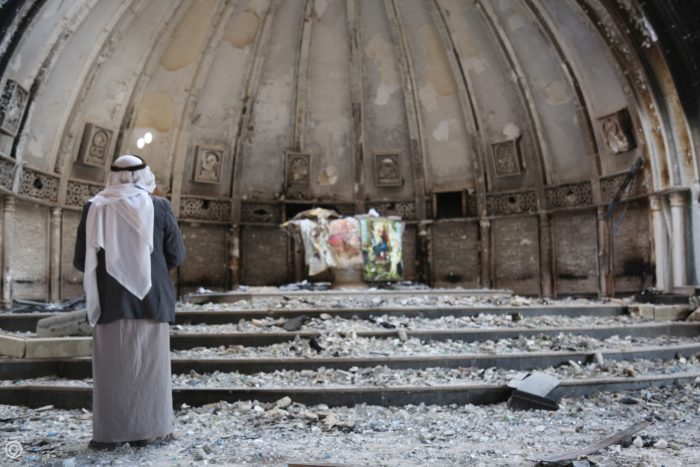Catholic bishops in England and Wales have urged the British government to ensure its foreign policy reflects its written pledges to defend religious freedom around the world.

The Catholic Bishops’ Conference of England and Wales filed a submission to the House of Commons Inquiry promoting Human Rights around the world.
The bishops welcomed the 2016 Human Rights and Democracy Annual Report published by the Foreign and Commonwealth Office (FCO) in which minister Lord Ahmad, who has just been made the government’s religious freedom tsar, said that “safeguarding, promoting and defending human rights, including freedom of religion or belief, is a key and integral part of the work of the Foreign and Commonwealth Office”.
They added: “However this commitment must be underpinned by practical action in order to ensure that the UK’s foreign policy makes a genuine difference for the millions of people who are suffering because of their faith.”
The bishops highlighted a religious illiteracy among FCO officials as a possible reason for a lack of such action.
“Strong religious literacy of ministers, ambassadors and diplomats is one of the most important requirements for effectively promoting freedom of religion or belief. Any decisions or advocacy affecting faith communities must be informed by a strong comprehension of different traditions, sensitivities and historical contexts. We recognise that the FCO provides some staff with religion and foreign policy training, and that diplomatic posts are provided with a freedom of religion or belief toolkit. However, the effectiveness, content and application of these remains unclear,” they wrote.
Last year one government adviser who is a Christian suggested some FCO staff were dismissive of the importance of religion to many people, and the courses were too short to challenge their views. Major General Tim Cross, who helped plan the 2003 invasion of Iraq, told the British Catholic weekly The Tablet:
“The trouble is that if you believe that you are – I call them ‘intellectual idiots’ – people educated beyond their intelligence – if you sit there in Whitehall thinking ‘well all this religion stuff is complete bollocks’ – then you can go and sit for half a day and be told it’s important and you can understand this stuff, but you don’t own it in your heart,” he said.
A number of Christian leaders and politicians in the UK, the US and the Middle East have repeatedly voiced concern that in multi-faith contexts such as Iraq, a failure by Western donor governments to acknowledge the fears of religious minorities has led to minority communities missing out on aid that is distributed from UN camps they are too scared to enter.
In their submission last week, the bishops called for diplomatic posts to be more frequently informed by “regular engagement with local faith communities”, and called for a centralised way of recording such engagement and suggested that records be published at regular intervals by the FCO.
They noted that such records form part of the US State Department’s annual report, which documents levels of religious freedom in different nations around the world and includes recommendations for strengthening the US’s religious freedom policies.
The bishops also called for the Foreign Office’s work on promoting freedom of religion or belief to be better funded, noting that only 7.2 per cent of the Foreign Office’s Magna Carta Fund for Human Rights and Democracy was spent on related work.